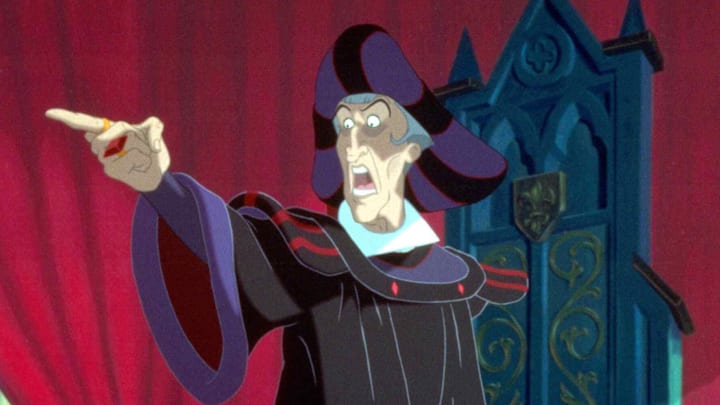Disney's adaptation of Victor Hugo's The Hunchback of Notre Dame (1997) is often considered the studio's most mature film, and for good reason. Along with dark themes of religion, prejudice, lust, and other adult concepts, it also re-envisioned several iconic Disney tropes.
Judge Claude Frollo fits the role of a classic Disney villain brilliantly but does it realistically to show young viewers that villains aren't always evil queens or wicked wizards but people in positions of power we're supposed to trust. However, one viewer made a recent observation that Frollo, like most true-to-life villains, didn't have to walk the path he chose.
Disney's divine intervention
Before Disney was doling out ice queens, Lin-Manuel Miranda soundtracks, and countless sequels and remakes, there was a time when experimentation and mature storytelling reigned supreme. While many are quick to praise The Lion King (1994), The Hunchback of Notre Dame could be considered a true Renaissance piece.
Troy Zaher is an influencer who analyzes different pieces of animated media, but his TikTok revisiting The Hunchback of Notre Dame and analyzing Frollo's "Hellfire" brings new elements to light that even this animation aficionado missed. The number is one of the most haunting Disney villain songs, but its symbolism runs deeper than most know.
In this writer's opinion, "Hellfire" is perhaps one of the most perfect musical numbers because it accurately depicts a character's internal struggles and motivation through song while moving the plot along. However, Zaher goes into vivid detail concerning the religious themes and imagery.
The whiplash point in his take is the divine intervention in the form of the guard illuminated by the white light, possibly representing God giving him a chance to let her go and save himself. Not only is this a reference to the scriptural idea that salvation is a choice, but it's one of the only times we see a villain receive such an opportunity.
Think about it. Maleficent, Jafar, Scar, and other villains like them rarely get a chance to turn back because they are so set in their schemes. Frollo, on the other hand, is much more complex than the average animated bad guy.
From the beginning of the film, it's established that Frollo does what he does under the assumption that it's for the greater good. Like most complex and realistic villains, he's not doing evil for evil's sake. It's only when lust enters the mix that his immortal soul becomes forfeit.
Elements like this prove Disney once had an underappreciated side to its trademarked magic. At one time, Disney could tell deep and complex stories with gorgeous animation that appealed to the whole family. Perhaps it's time for the mouse to go back to the drawing board.
The Hunchback of Notre Dame is currently available on Disney+.
